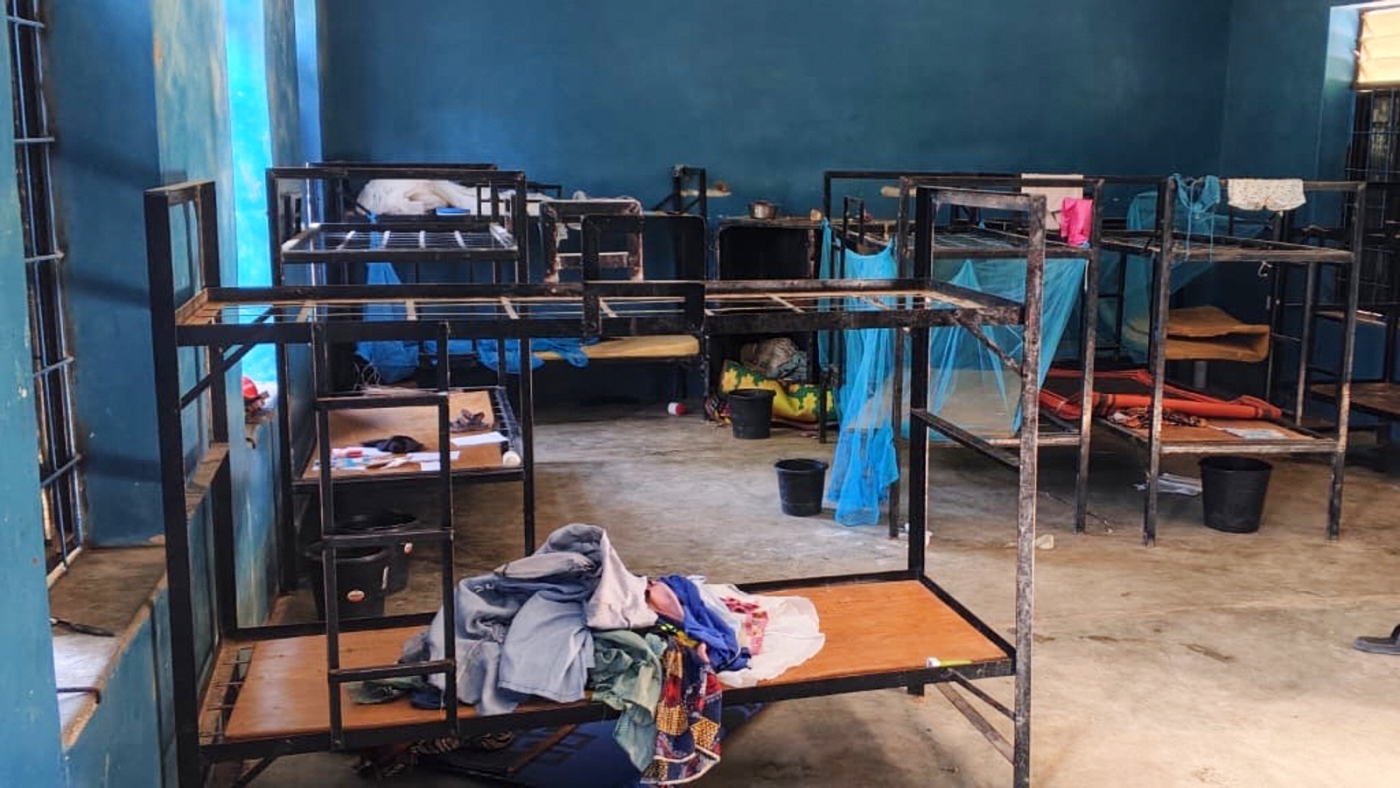TOKYO -- Japan deployed troops Wednesday to the northern prefecture of Akita to help contain a surge of bear attacks that have terrorized residents in the mountainous region.
Reports of unexpected encounters with bears are now being reported almost daily ahead of hibernation season as the bears forage for food. The animals have been seen roaming near schools, train stations, supermarkets and even at a hot springs resort.
Some of the encounters have resulted in the injuries and even human deaths. The growing bear population's encroachment into residential areas is happening in a region with a rapidly aging and declining human population.
Since April, more than 100 people have been injured and at least 12 killed in bear attacks across Japan, according to Environment Ministry statistics at the end of October.
The Defense Ministry and Akita prefecture signed an agreement Wednesday to deploy soldiers to address the bear problem. Soldiers will set box traps with food, transport local hunters, and help dispose of dead bears. Officials say the soldiers will not use firearms to cull the bears.
“Every day, bears intrude into residential areas in the region and their impact is expanding,” Deputy Chief Cabinet Secretary Fumitoshi Sato told reporters. “Responses to the bear problem are an urgent matter.”
The operation began in a forested mountain area in Kazuno city in northern Akita, where a number of bear sightings and injuries have been reported. A team of white helmeted soldiers wearing bullet proof vests and carrying bear spray and net launchers set up a bear trap near an orchard.
Takahiro Ikeda, an orchard operator in the neighborhood said bears have already eaten more than 200 of his apples that were ready for harvest. “My heart is broken,” he told NHK television.
Akita Gov. Kenta Suzuki said local authorities were getting “desperate” due to a lack of manpower amid daily reports of bear sightings and attacks.
Defense Minister Shinjiro Koizumi said Tuesday the bear mission aims to help secure people's daily lives, but that service members' primary mission is national defense and they cannot provide unlimited support for the bear response. The Japanese Self-Defense Forces are already understaffed.
So far, the ministry has not received requests from other prefectures for troop assistance over the bear issue, he said.
In Akita prefecture, which has a population of about 880,000, bears have attacked more than 50 people since May, killing at least four, according to the local government. Experts say most of the bear attacks have occurred in residential areas.
An elderly woman who went mushroom-hunting in the forest was found dead in an apparent bear attack over the weekend in the city of Yuzawa. Another elderly woman in Akita city encountered a bear while working on a farm and was killed in late October. And a newspaper delivery man was attacked by a bear and suffered an injury in Akita city on Tuesday.
On Wednesday, a resident of Akita city spotted two bears on a persimmon tree in her garden. Luckily she was indoors and filmed the bears as they ate the fruits and walked about the garden for about 30 minutes. The resident, a woman in her 70s, told a local TV network that she was frightened because the bears appeared at one point to want to enter the room she was in, and she moved away from the window.
Experts say Japan's aging and declining population in rural areas are among the reasons for the growing bear problem. They say the bears are not endangered and need culling to keep the population under control.
Abandoned neighborhoods and farmland with persimmon or chestnut trees often attract bears to residential areas. Once bears find food, they keep coming back, experts say.
Local hunters are also aging and not used to bear hunting. Experts say police and other authorities should be trained as “government hunters” to help cull the animals.
The government set up a task force last week to create an official bear response by mid-November. Officials are considering bear population surveys, the use of communication devices to issue bear warnings and revisions to hunting rules. They also say experts should be trained in hunting and ecology.
The lack of preventive measures in the depopulated and aging northern regions have also led to an increase in the populations of brown bears and Asiatic black bears, the ministry said.
___
AP video journalist Mayuko Ono contributed to this report.

 1 month ago
19
1 month ago
19










 English (US) ·
English (US) ·